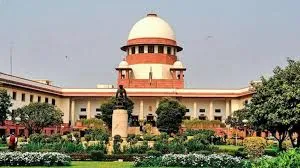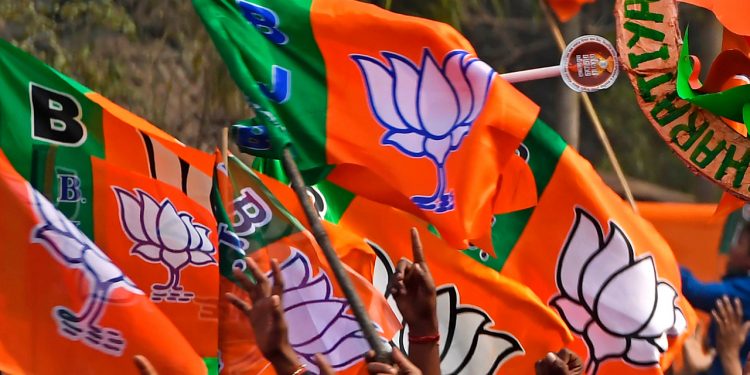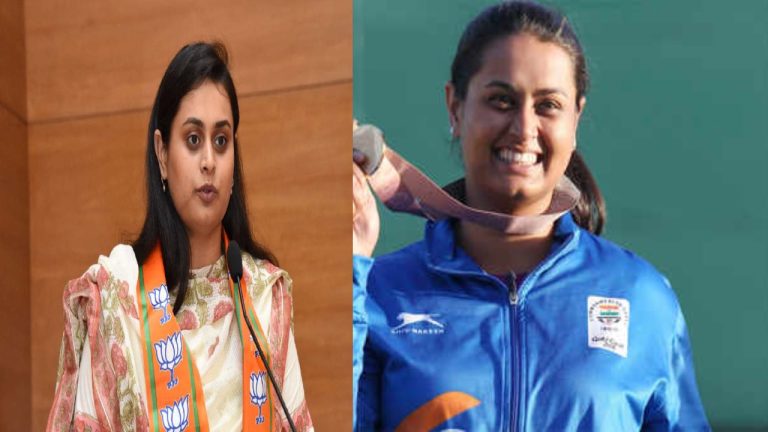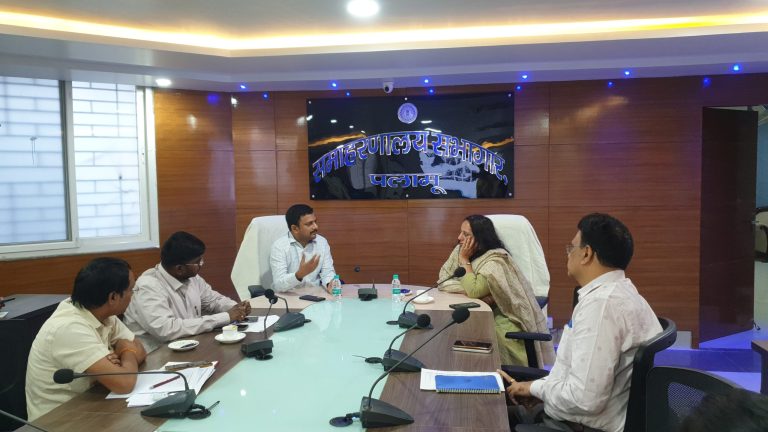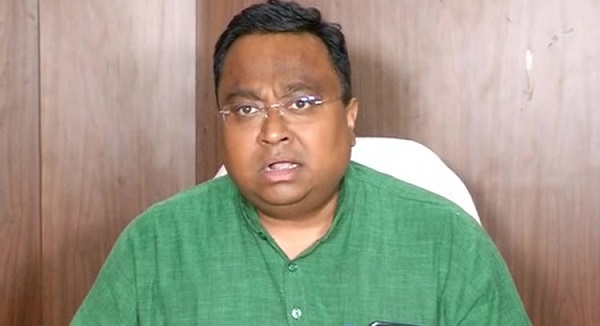The Constitution is silent on the criteria for promoting government employees. – Supreme Court
Bureau Prayagraj. The Constitution is silent on the criteria for promotion of government servants. The Supreme Court has held that the legislature and the executive are free to fix the criteria for promotion having regard to the nature, functions and requirements of a promotional post.
In a recent judgment, a bench of CJI DY Chandrachud and Justices JB Pardiwala and Manoj Mishra has said that no government employee in India can consider promotion as his right, as no criteria has been prescribed in the Constitution for filling seats on promotional posts. The legislature or the executive can decide the method of filling vacancies on promotional posts depending on the nature of employment and the work expected from the candidate.
The Constitution cannot determine the promotion policy.
The Supreme Court said that the judiciary cannot undertake review to decide whether the policy adopted for promotion is suitable for selecting the 'best candidates' except on the limited ground where such policy appears to violate the principle of equal opportunity guaranteed under Article 16 of the Constitution. While settling the dispute over the selection of district judges in Gujarat, the bench said that the principle of seniority as a criterion for selection for promotion derives from the belief that merit is related to experience and it limits the scope for bias.
Writing the judgment, Justice Pardiwala said, “There has always been a presumption that employees working for a long time have shown loyalty to the employer organization and hence are entitled to reciprocal treatment.” He said that for the last several years, the Supreme Court has consistently ruled that where promotions are based on the principle of 'merit-cum-seniority', more emphasis is given on merit. Similarly, in the principle of 'seniority-cum-merit' also, more emphasis is given on seniority.
The bench has said that the terms 'merit-cum-seniority' or 'seniority-cum-merit' are not statutorily defined by the legislature. These principles are judicial meanings which have evolved over a period of years through various judgments of this court and the High Courts while dealing with promotion cases relating to various laws and service conditions. The Supreme Court immediately clarified that the above two parameters are not mandatory as these are not supported by the law made by the legislature. The Supreme Court said that these are products of judicial interpretation, which have evolved while dealing with various types of promotion policies.
The Supreme Court said, “The principle of 'merit-cum-seniority' and 'seniority-cum-merit' is a flexible and fluid concept as broad principles within which the actual promotion policy can be formulated. They are not rigid rules or requirements and in no manner can they replace statutory rules or policies. These principles are dynamic in nature, very much like a spectrum and their application and scope depend upon the rules, policy, nature of the post and requirements of the service.”
In Syed Habibur Rahman v State of Assam & 2 others WP(C)/688/2014 the Gauhati High Court has held that considering promotion as an aspect of fundamental right, deserving candidates cannot be denied promotion when vacancies are available. The Gauhati High Court directed the Fisheries Department of the Government of Assam to consider the representation of a retired in-charge District Fisheries Development Officer (DFDO) for promotion to the post of DFDO on the basis of merit in respect of the post he held on the date of his retirement, dismiss him from service and pass appropriate orders within 3 months.
A single bench of Justice Suman Shyam said that the law is well settled that the right to be considered for promotion is an aspect of fundamental right. If vacancies are available to be filled through promotion and there are eligible departmental candidates who have a right to be considered for promotion to such posts, then the authorities cannot deny an opportunity to such candidates coming in the field of consideration. In this way, he is deprived not only of the satisfaction of career progression but also of the consequential economic benefits.
The case of the petitioner was that he was originally appointed as Fisheries Extension Officer and joined the Department in the year 1982. In the year 1992, the petitioner submitted that he was promoted to the post of Sub-Divisional Fisheries Development Officer (SDFDO). In 2005, he was given the charge of DFDO. However, he was not promoted to the said post on regular basis. The petitioner retired from service as Incharge DFDO on 01.12.2017.
The contention of the petitioner was that there were vacancies available in the cadre of DFDO to be filled through promotion on regular basis. Despite this and the fact that the date of retirement of the petitioner was fast approaching, no steps were taken by the authorities to consider his case for promotion.
The petitioner while in service had first approached the High Court with the aforesaid grievance. The Court vide its order dated October 4, 2013 directed the respondents to consider the case of the petitioner and pass appropriate orders as early as possible but on any date before his retirement.
The acting in-charge can be promoted if the person is satisfied with his work.
In the meanwhile, by notification dated October 10, 2013, the petitioner, who was holding the post of SDFDO and Incharge, DFDO, Sivasagar, was transferred and posted as Superintendent, Fisheries Training, Joysagar. Further, by order dated December 12, 2013, the claim of the petitioner for promotion to the post of DFDO was rejected by the respondents due to anomaly in the fisheries services.
The counsel appearing for the petitioner argued that the authorities had no reasonable ground to deny regular promotion to the petitioner to the substantive post of DFDO before his retirement. On the other hand, the Senior Government Counsel for Assam submitted that the petitioner is not eligible to be considered for promotion to the post of DFDO as he failed to fulfil the mandatory requirement of postgraduate training in fisheries science at CIFRI/CIFE or any other equivalent training recognized by ICAR.
